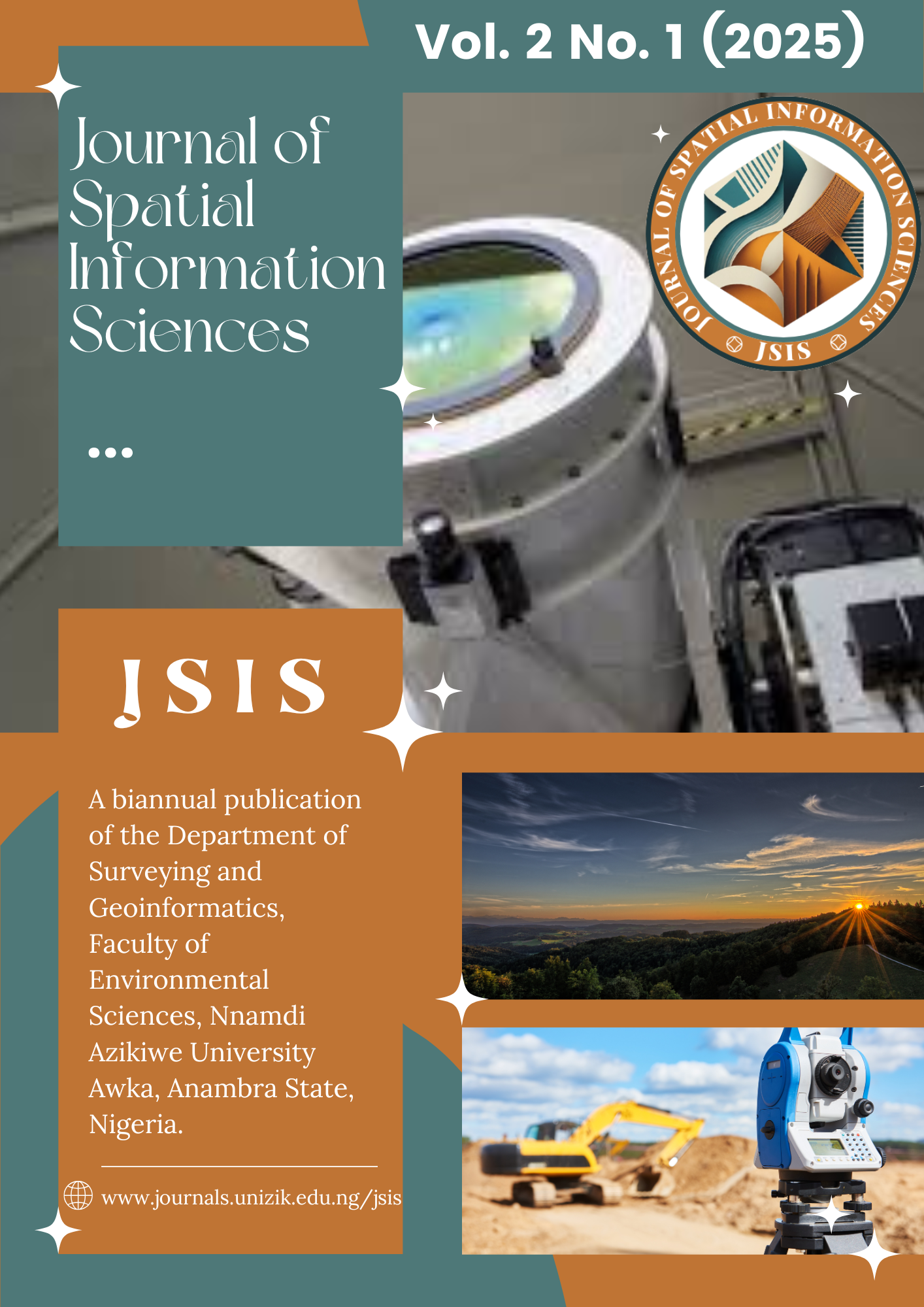A Review of the Challenges and Prospects of Artificial Intelligence Applications in Gravimetric Geodesy
DOI:
https://doi.org/10.5281/zenodo.14809386Keywords:
Gravimetric geodesy, Artificial intelligence, AI applications, AI Challenges and SolutionsAbstract
Gravimetric geodesy is a branch of geodesy that studies the strength, characteristics and effects of the Earth’s gravity field as well as its temporal variations in space and time. It also functions as a fundamental approach for understanding the gravitational field of the earth, along with its various applications in geophysical exploration, geoid determination and other geodetic pursuits. Traditionally, scholars have relied on mathematical and physical models, however, with the advent of Artificial Intelligence (AI), particularly Machine Learning (ML) and Deep Learning (DL), novel and innovative methods for modern data capture architecture (payloads on satellite, UAS, and airplanes), processing, simulation, animation as well as managing extensive and complex gravity data have emerged. This paper aims to explore the transformative influence of AI on gravimetric geodesy,given its challenges and possible solutions and strategies. AI possesses the potential to significantly improve accuracy and efficiency in data processing; however, obstacles such as data quality, model interpretability and considerable computational demands may hinder its wider adoption. This study proposes several solutions, such as advanced data pre-processing and hybrid AI-geodesy models, alongside explainable AI frameworks and enhanced computational infrastructure. This paper therefore, recommends interdisciplinary collaboration to fully explore and exploit the potential of AI in gravimetric geodesy for sustainable applications in Nigeria and across the regions of the Earth.
Downloads
Published
Issue
Section
License
Copyright (c) 2025 Journal of Spatial Information Sciences

This work is licensed under a Creative Commons Attribution 4.0 International License.





